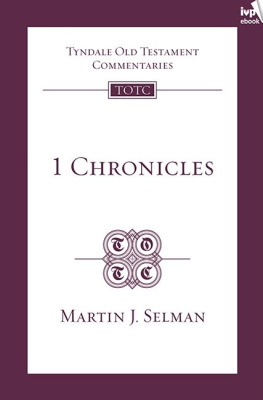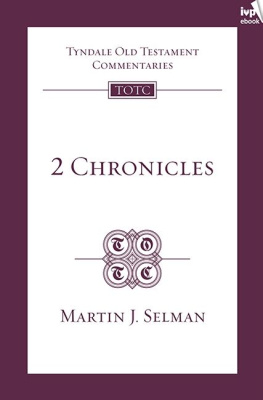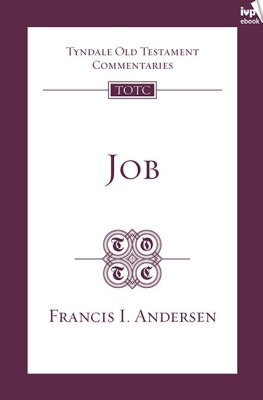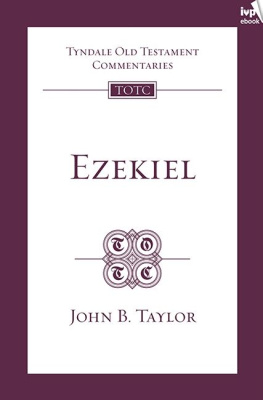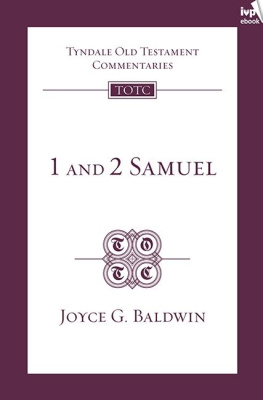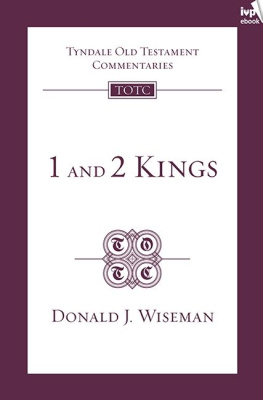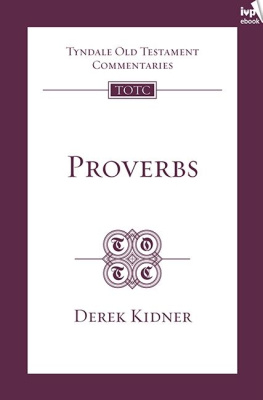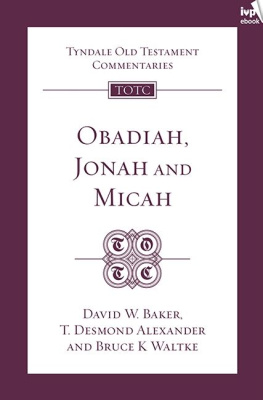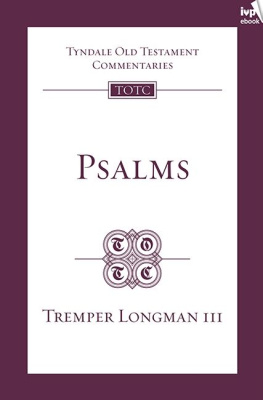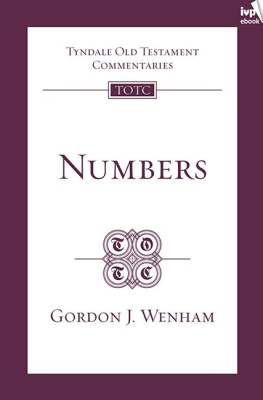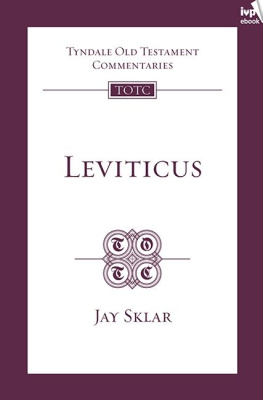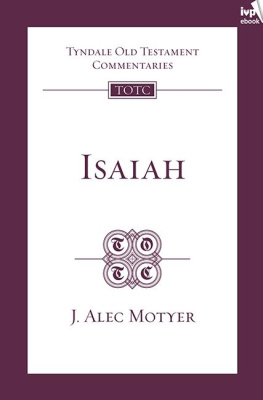Martin J. Selman - 1 Chronicles (TOTC)
Here you can read online Martin J. Selman - 1 Chronicles (TOTC) full text of the book (entire story) in english for free. Download pdf and epub, get meaning, cover and reviews about this ebook. year: 2008, publisher: Inter-Varsity Press, genre: Religion. Description of the work, (preface) as well as reviews are available. Best literature library LitArk.com created for fans of good reading and offers a wide selection of genres:
Romance novel
Science fiction
Adventure
Detective
Science
History
Home and family
Prose
Art
Politics
Computer
Non-fiction
Religion
Business
Children
Humor
Choose a favorite category and find really read worthwhile books. Enjoy immersion in the world of imagination, feel the emotions of the characters or learn something new for yourself, make an fascinating discovery.
- Book:1 Chronicles (TOTC)
- Author:
- Publisher:Inter-Varsity Press
- Genre:
- Year:2008
- Rating:5 / 5
- Favourites:Add to favourites
- Your mark:
- 100
- 1
- 2
- 3
- 4
- 5
1 Chronicles (TOTC): summary, description and annotation
We offer to read an annotation, description, summary or preface (depends on what the author of the book "1 Chronicles (TOTC)" wrote himself). If you haven't found the necessary information about the book — write in the comments, we will try to find it.
1 Chronicles (TOTC) — read online for free the complete book (whole text) full work
Below is the text of the book, divided by pages. System saving the place of the last page read, allows you to conveniently read the book "1 Chronicles (TOTC)" online for free, without having to search again every time where you left off. Put a bookmark, and you can go to the page where you finished reading at any time.
Font size:
Interval:
Bookmark:
Volume 10
General Editor: Donald J. Wiseman
An Introduction and Commentary
Martin J. Selman
Martin J. Selman 1994
All rights reserved. This eBook is licenced to the individual who purchased it and may not be reproduced, stored or transmitted, in any form, or by any means, electronic, mechanical, or otherwise, except for the sole, and exclusive use of the licensee, without prior permission of the publisher or the Copyright Licensing Agency.
Unless otherwise stated, quotations from the Bible are from the THE HOLY BIBLE, NEW INTERNATIONAL VERSION, NIV Copyright 1973, 1978, 1984, 2011 by Biblica, Inc. Used by permission. All rights reserved worldwide.
First published 1994
Reprinted in this format 2008
ISBN: 9781783592333
Series design: Sally Ormesher
Illustration: Kev Jones

INTER-VARSITY PRESS
Norton Street, Nottingham NG7 3HR, England
Email:
Website: www.ivpbooks.com
Inter-Varsity Press publishes Christian books that are true to the Bible and that communicate the gospel, develop discipleship and strengthen the church for its mission in the world.
Inter-Varsity Press is closely linked with the Universities and Colleges Christian Fellowship, a student movement connecting Christian Unions in universities and colleges throughout Great Britain, and a member movement of the International Fellowship of Evangelical Students. Website: www.uccf.org.uk
The aim of this series of Tyndale Old Testament Commentaries, as it was in the companion volumes on the New Testament, is to provide the student of the Bible with a handy, up-to-date commentary on each book, with the primary emphasis on exegesis. Major critical questions are discussed in the introductions and additional notes, while undue technicalities have been avoided.
In this series individual authors are, of course, free to make their own distinct contributions and express their own point of view on all debated issues. Within the necessary limits of space they frequently draw attention to interpretations which they themselves do not hold but which represent the stated conclusions of sincere fellow Christians.
Though the two books of Chronicles are much neglected they have, as Dr Martin Selman skilfully shows, an abiding message of hope for todays church. Readers who study them with the aid of this commentary will surely come to a new appreciation of their place in the Old Testament canon.
In the Old Testament in particular no single English translation is adequate to reflect the original text. The version on which this commentary is based is the New International Version, but other translations are frequently referred to as well, and on occasion the author supplies his own. Where necessary, words are transliterated in order to help the reader who is unfamiliar with Hebrew to identify the precise word under discussion. It is assumed throughout that the reader will have ready access to one, or more, reliable rendering of the Bible in English.
Interest in the meaning and message of the Old Testament continues undiminished, and it is hoped that this series will thus further the systematic study of the revelation of God and his will and ways as seen in these records. It is the prayer of the editor and publisher, as of the authors, that these books will help many to understand, and to respond to, the Word of God today.
D. J. Wiseman
It is the strange privilege of every commentator to recommend that the book his readers really ought to read is not the one he has written. In that sense, his role is not unlike John the Baptists, whose ability to point away from himself to someone far greater ought to make him the patron saint of commentators.
My real desire, therefore, is that you come to read the books of Chronicles for yourself. That is the end for which this commentary has been written, in the hope that you will receive some guidance in understanding and praying over this part of the word of God.
Though the Chronicler has been my companion for several years, I have not ceased to be filled with admiration for the breadth of his vision and his extraordinary perception. His conviction that Gods message is also essentially a hopeful one justifies his work being described as the good news according to the Chronicler. I have been amazed too at the relevance of his work for the modern world, especially for Christians who form a minority in their society, perhaps even suffering for their faith, and with little hope of seeing positive change in the political context in which they live; those who have lost hope of ever seeing for themselves the glorious times experienced by Christians of former generations; those who are concerned for the spiritual health of their nation and would like to discover what role Christians could have in being an influence for good; those who want to have a broad vision of Gods purposes for their lives and for the church; and those who want to understand what the Old Testament as a whole is about and why it is included in the Bible.
Maybe in the past you have been dissuaded from reading the books of Chronicles because of their length, or because they contain ancient history, or above all because of their lists of strange names, especially in the first nine chapters. None of these presents an insurmountable obstacle to enjoying Chronicles, however. Especially if you have never attempted to read Chronicles seriously before, may I suggest that you start at 1 Chronicles 10 and simply leave out the lists until you feel you are ready for them. It would be a shame to miss out on all that God has to say simply because of a problem about where to start.
The Chroniclers concern is that his readers should experience genuine healing, and what he has to say on the subject goes far deeper than most contemporary discussion and teaching. It is my prayer that each of you will receive something of this healing and restoration, and that in doing so you will discover more of Gods own heart (cf. 2 Chr. 7:14, 16).
A special feature of this commentary is the information which occurs at the beginning of each section. First of all a quotation is given, selected from the section of biblical text which follows. This quotation is intended to summarize the thought of the section. It is remarkable how frequently the Bible itself crystallizes the theme of a passage in a succinct and apposite manner. The quotation is then usually followed by some biblical references, which may be quite extensive. These refer to passages which are in some way parallel with the passage under consideration. In fact, they probably indicate the sources which the Chronicler has used. Identification of these sources is an essential feature of this volume, since it is argued in the commentary that the Chronicler assumes that his readers are reasonably familiar with this earlier material. It seems as if the Chronicler is actually commenting on these earlier parts of Scripture, and that he does so by various methods. If the books of Chronicles are read with this perspective in mind, the modern reader will often find it useful to refer to the relevant parts of the Old Testament at the same time as reading the text of Chronicles. This will help considerably in illuminating the meaning of the biblical text, and will bring a much deeper awareness of the potential significance of Gods word both then and now.
The basic version of the English Bible to which this commentary refers is the New International Version, which is usually quoted without any further details. However, other versions have been used extensively throughout, such as the New English Bible, the Revised English Bible, the New Revised Standard Version, the Revised Standard Version, the Good News Bible, and the Jerusalem Bible. Readers should be able to use this commentary with whatever modern version is available to them, since the commentary is ultimately based on the Hebrew text of the Old Testament, usually known as the Massoretic Text. Since no single modern version can convey all the richness of the original Hebrew, the use of several versions in the commentary actually gives the reader a genuine advantage in understanding what God is saying.
Font size:
Interval:
Bookmark:
Similar books «1 Chronicles (TOTC)»
Look at similar books to 1 Chronicles (TOTC). We have selected literature similar in name and meaning in the hope of providing readers with more options to find new, interesting, not yet read works.
Discussion, reviews of the book 1 Chronicles (TOTC) and just readers' own opinions. Leave your comments, write what you think about the work, its meaning or the main characters. Specify what exactly you liked and what you didn't like, and why you think so.

